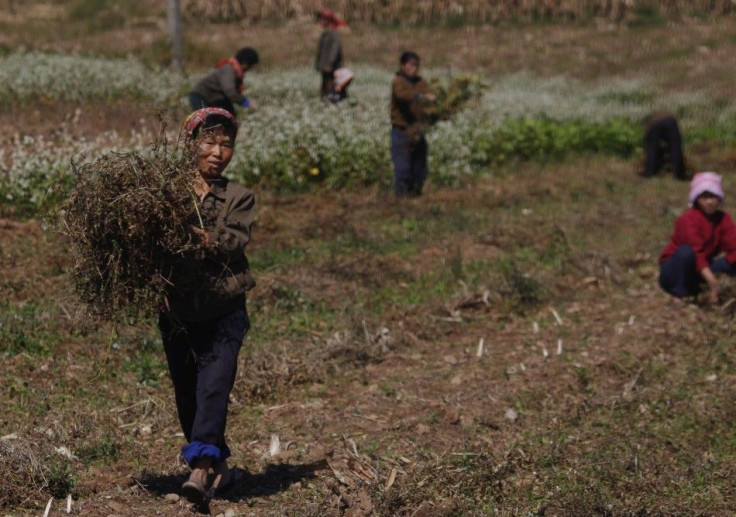U.S. Scraps Food Aid As North Korea Plans Missile Launch

The U.S. announced Wednesday it will suspend a food program to North Korea, citing Pyongyang's breach of an agreement to no longer perform missile testing in exchange for such aid.
North Korea's planned launch of what it claims to be a weather satellite reflects their lack of desire to follow through on their international commitments, Peter Lavoy, acting secretary of defense for Asian and Pacific affairs, told the House Armed Services Committee on Wednesday.
So we've been forced to suspend our activities to provide nutritional assistance to North Korea, he said to lawmakers.
U.S. President Barack Obama previously warned that the planned launch could jeopardize the U.S.-North Korean agreement.
North Korea will achieve nothing by threats or provocations, he said prior to an international summit on nuclear security in Seoul, South Korea earlier this week.
North Korea knows its obligations and it must take irreversible steps to meet those obligations, he added.
U.S. officials have also expressed concerns that the food aid, intended for children and pregnant women, will end up in the hands of North Korea's elite.
It would be hard to give food aid without being sure that the commitments we are working on together would be honored to ensure that the food gets to the right people, US State department spokeswoman Victoria Nuland said.
North Korea, also called the Democratic People's Republic of Korea (DPRK), insists it is launching a meteorological satellite for scientific purposes.
The DPRK will not give up the satellite launch for peaceful purposes, which is a legitimate right of a sovereign state and a requirement essential for economic development, an unnamed spokesman from North Korea's Foreign Ministry is quoted by state-run Korean Central News Agency as saying.
The U.S. and its allies in the region insist that the launch will constitute a long-range missile test banned by the United Nations.
The launch is scheduled for between April 12-16, dates specifically chosen to coincide with the 100th anniversary of the birth of Kim Il Sung, the county's late founder and Great Leader.
North Korea's February agreement to suspend elements of its nuclear program and to stop missile testing in exchange for U.S. food aid was largely heralded as a breakthrough and a reflection of potentially a new era in diplomatic relations coinciding with the rise of Kim Jong-un as the isolated country's new leader, following the death of his father late last year.
Now, such hopes may be dashed.
Meanwhile, the food crisis in North Korea may worsen.
North Korea has been unable to produce adequate food for its people since it suffered a famine in the 1990s, and the U.S. has not sent food assistance since 2009.
© Copyright IBTimes 2025. All rights reserved.





















